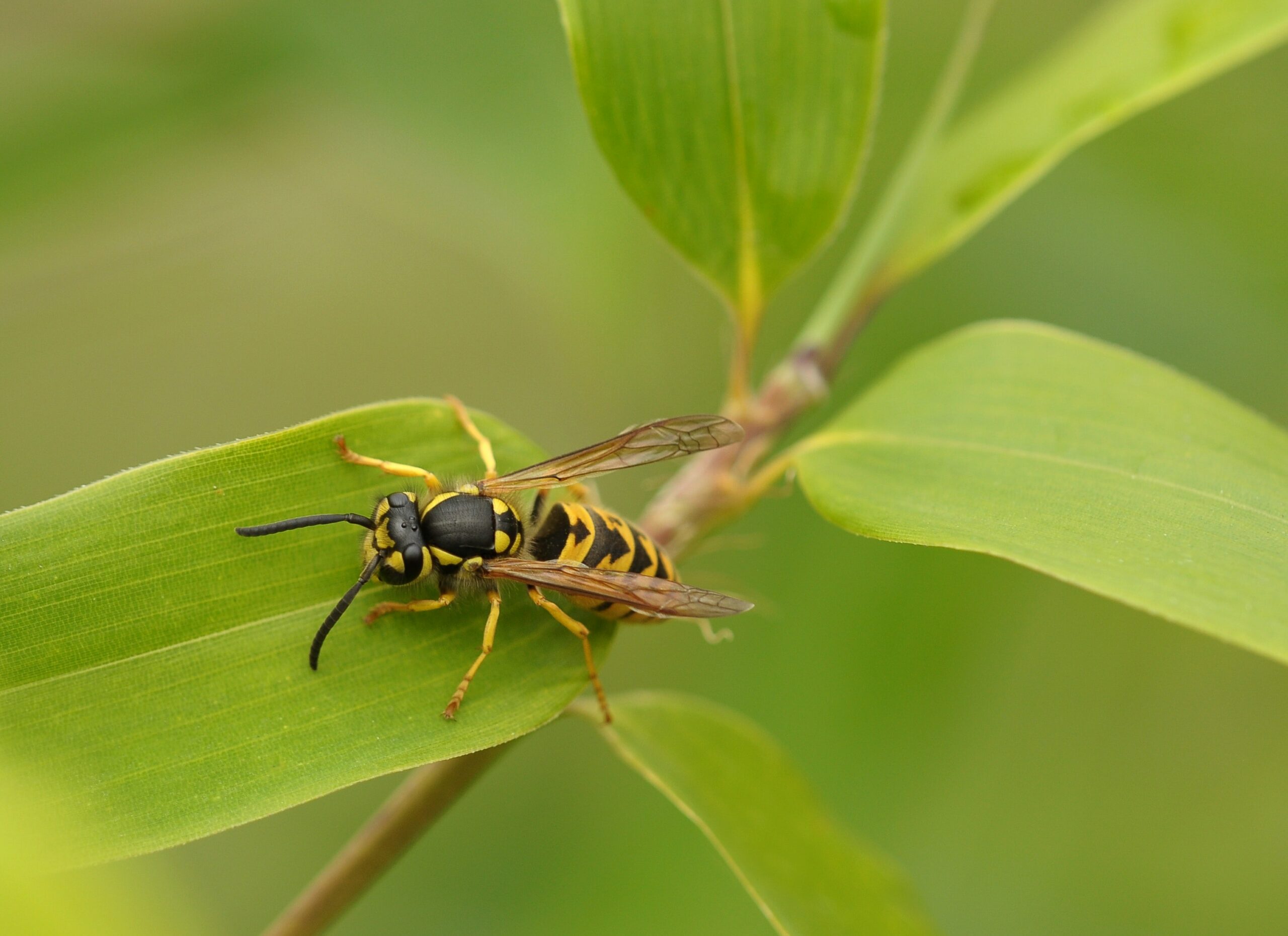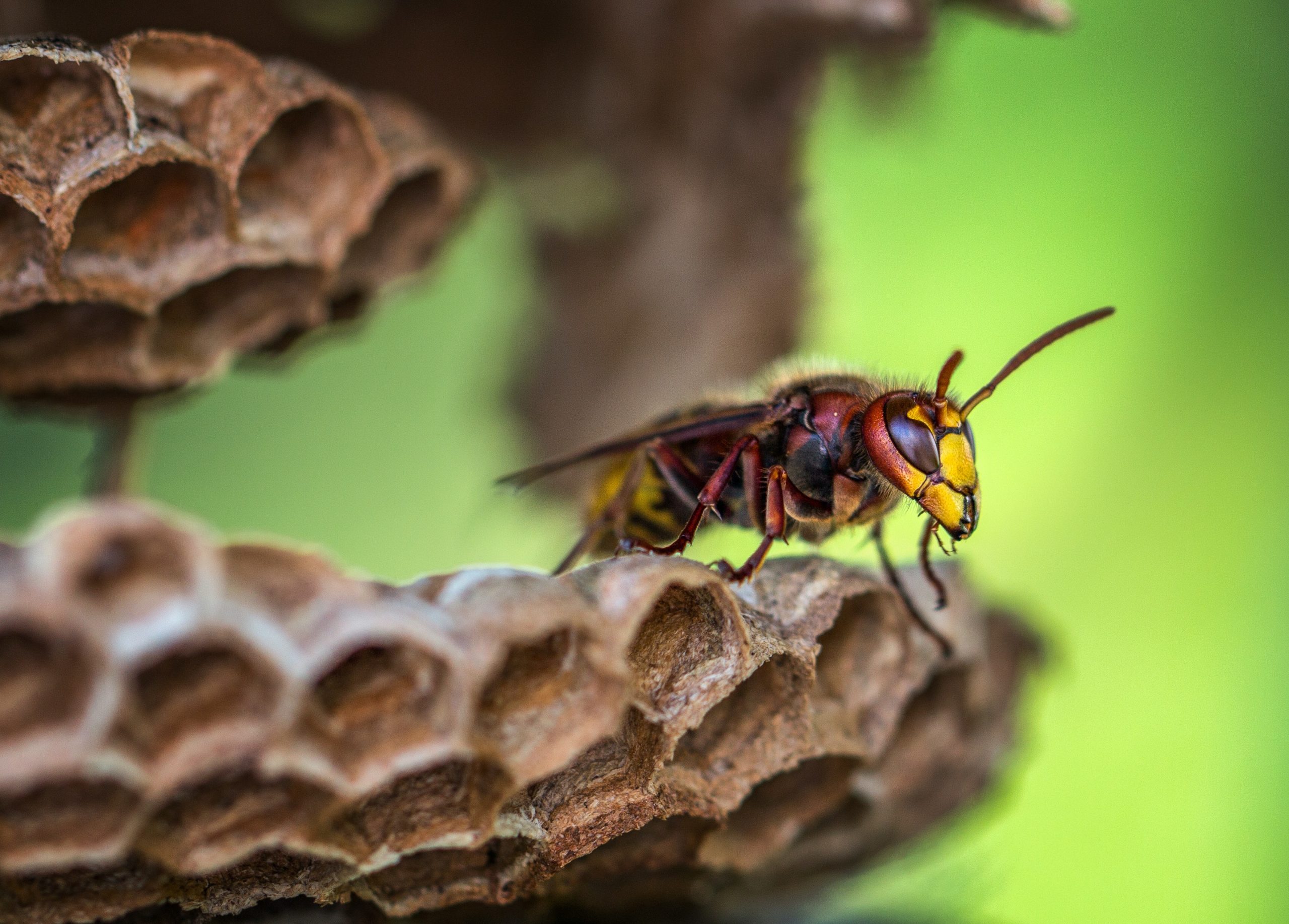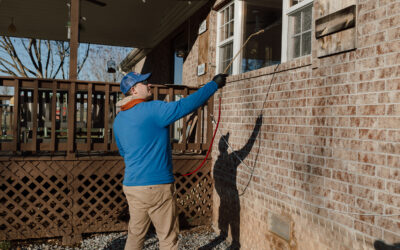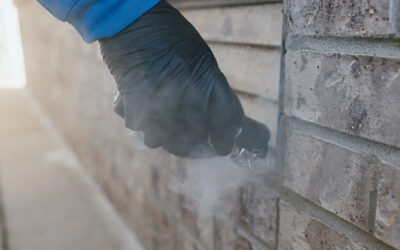
Why You Shouldn’t DIY Wasp Nest Removal
There are about 200,000 different species of wasps, which means that wasps live virtually everywhere on the planet– the only places truly free of wasps are very cold polar regions!
In Arkansas and Oklahoma, wasps are definitely a very common pest. If you’re a homeowner, you’ve probably had a few run-ins with wasp nests around your house or property– and if so, you’re well aware that they can be a very persistent and frustrating houseguest.
Are wasps dangerous?
Wasps are definitely not a friendly species. Unlike bees, wasps are able to sting many times– and if they feel that you’re threatening them or their nest, they will not hesitate to do so.
Additionally, wasps communicate with each other, which means that if a wasp feels threatened, it’ll send out a signal that attracts other wasps. This means that accidentally stumbling across a wasp’s nest can be extremely harmful.
For people who are allergic to wasp venom, even one sting can cause fatal anaphylactic shock. Even if you’re not allergic, stings are potentially fatal– but only if you get stung hundreds or thousands of times.
Regardless, wasps are mean and quick to attack. If you have a lot of wasps on your property, it’s necessary for your family’s safety to take care of the problem as soon as possible.
Why are there wasps on my property?
Wasps build nests in spots that are comfortable for them. If you’re finding wasp nests on your house or your property, it’s because wasps have found conditions that they find ideal.
A wasp’s ideal home is in a shady spot, out of direct sunlight, but not too cold. It’s also high up or in a spot that’s inaccessible to threats and predators– making it also difficult to access for you!
Most wasps make their nests out of wood fibers. If you have a lot of wood on your property, like brush or just old and weathered wood (like tables or fences), wasps will be attracted to the reliable source of building materials and will build their nests nearby.

How can I remove a wasp’s nest?
If you Google the subject, you’ll find lots of advice.
Some websites recommend sneaking up on a wasp’s nest at night with a garbage bag and capturing the whole nest. Others recommend spraying a wasp’s nest with water.
We cannot emphasize enough how much we discourage doing either of those things, or any of the other DIY wasp removal methods that you might find.
The two methods listed here are not safe for an untrained person to do– and most likely are completely ineffective. In fact, trying to gather up a wasp’s nest into a bag, or spraying it with water, will only infuriate the wasps in the nest.
It won’t destroy the nest or kill any of the wasps. They’ll just be angry and looking to harm the person responsible for threatening their home, which means you better run– fast.
A job for the professionals
For your own safety and that of your family, please don’t try to DIY wasp nest removal. Doing so will only put you in unnecessary danger, and it most likely won’t effectively solve the problem.
Instead, if you’re dealing with wasps on your home or property, call professionals who are trained to safely and effectively remove wasp nests. Don’t put yourself at risk– give West Termite & Pest a call today, or reach out to schedule a free consultation.
More posts from West Termite, Pest & Lawn
Pestproofing Entry Points Before Spring
As spring approaches in Arkansas, homeowners face an increased risk of pests seeking warmth, food, and shelter. Many infestations begin with small, unnoticed entry points that allow insects, rodents, and other pests to move indoors. Pestproofing your home before the...
Early Spring Termite Activity in Arkansas
As Arkansas begins to warm in early spring, homeowners may assume termites remain dormant until the summer months. In reality, spring termite colonies can become active much earlier, especially as soil temperatures rise and moisture levels increase. Subterranean and...
Preparing Your Home for Early Spring Pests
As winter fades and temperatures rise in Arkansas, homes become vulnerable to a fresh wave of early spring pests. Early spring is a critical time to take preventive action because insects, rodents, and other pests start emerging from dormancy, seeking food, warmth,...



